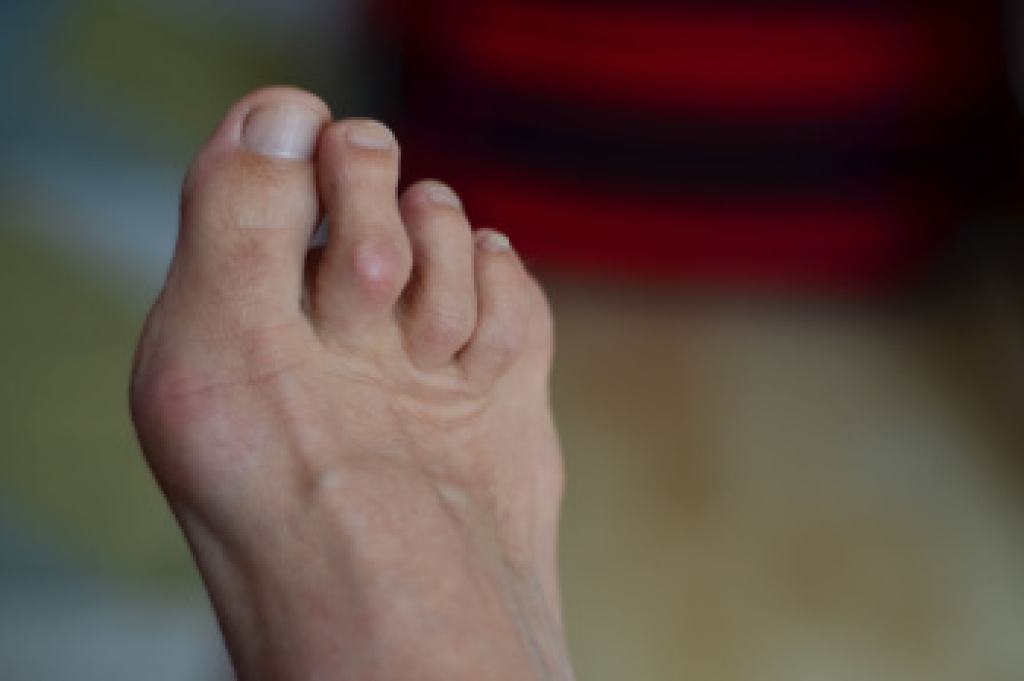
Hammertoes are a deformity where one or more smaller toes bend downward at the middle joint, creating a hammer-like appearance. This condition often results from an imbalance in the muscles and tendons that control toe movement, which can cause the toes to curl and become rigid. Common causes include wearing poorly fitting shoes that squeeze the toes or having a high foot arch that contributes to muscle imbalance. Risk factors also include genetic predisposition, conditions such as arthritis, and prolonged periods of standing or walking. Addressing hammertoes typically involves wearing well-fitting, supportive footwear, using orthotic devices, and performing exercises to stretch and strengthen the toes. In severe cases, surgery may be needed. If you notice signs of a hammertoe developing, it is suggested that you consult a podiatrist who can offer you effective treatment strategies.
Hammertoe
Hammertoes can be a painful condition to live with. For more information, contact our podiatrists from Superior Foot & Ankle Center. Our doctors will answer any of your foot- and ankle-related questions.
Hammertoe is a foot deformity that affects the joints of the second, third, fourth, or fifth toes of your feet. It is a painful foot condition in which these toes curl and arch up, which can often lead to pain when wearing footwear.
Symptoms
- Pain in the affected toes
- Development of corns or calluses due to friction
- Inflammation
- Redness
- Contracture of the toes
Causes
Genetics – People who are genetically predisposed to hammertoe are often more susceptible
Arthritis – Because arthritis affects the joints in your toes, further deformities stemming from arthritis can occur
Trauma – Direct trauma to the toes could potentially lead to hammertoe
Ill-fitting shoes – Undue pressure on the front of the toes from ill-fitting shoes can potentially lead to the development of hammertoe
Treatment
Orthotics – Custom made inserts can be used to help relieve pressure placed on the toes and therefore relieve some of the pain associated with it
Medications – Oral medications such as anti-inflammatories or NSAIDs could be used to treat the pain and inflammation hammertoes causes. Injections of corticosteroids are also sometimes used
Surgery – In more severe cases where the hammertoes have become more rigid, foot surgery is a potential option
If you have any questions, please feel free to contact our office located in Long Beach, CA . We offer the newest diagnostic and treatment technologies for all your foot care needs.
